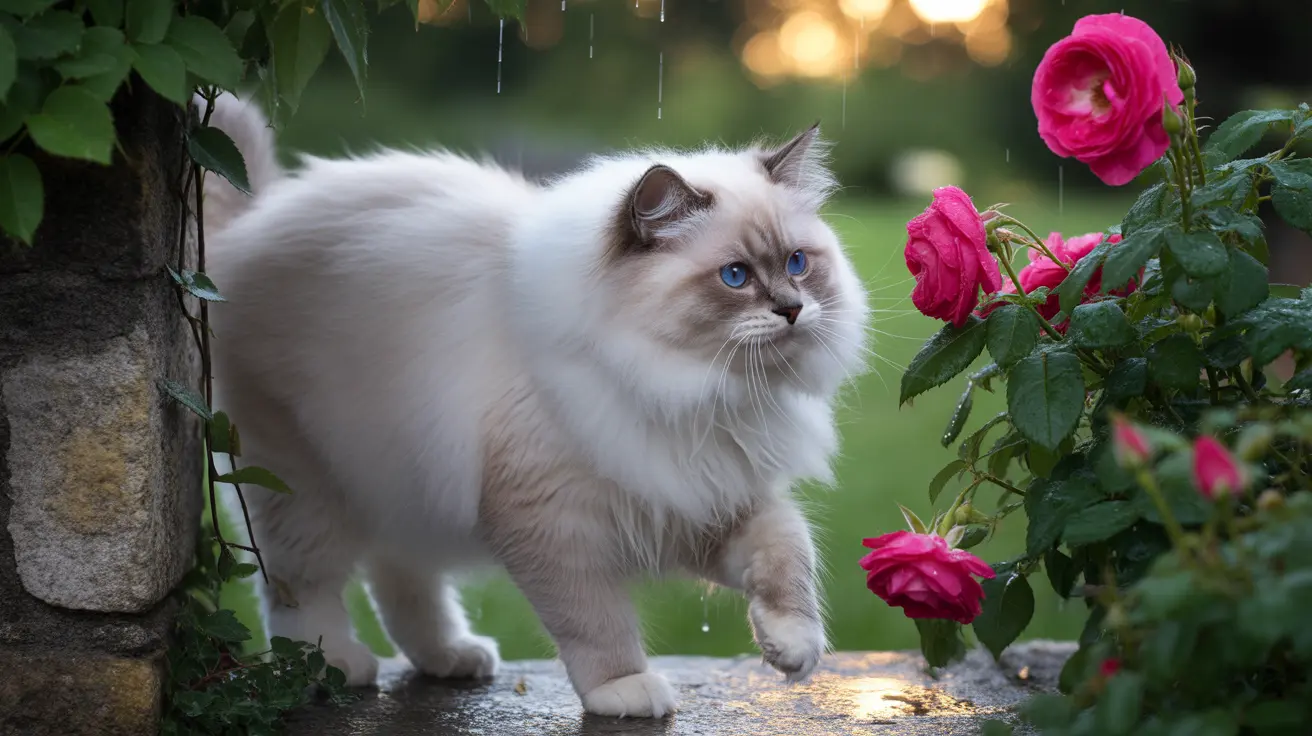Many pet owners wonder if nature's cleaning power - rain - could help eliminate troublesome flea infestations. While it's tempting to hope that a good downpour might solve your flea problems, the reality is more complicated. Let's explore the real relationship between rain and fleas, and why these resilient parasites often survive - and even thrive - in wet conditions.
Understanding how rain affects fleas is crucial for effective pest control. These hardy insects have evolved remarkable survival mechanisms that help them weather various environmental challenges, including rainfall. Let's dive deep into the science behind flea survival and discover why rain alone isn't the solution to your flea problems.
How Rain Affects Different Flea Life Stages
Adult fleas are incredibly resilient to water exposure. These tough parasites can survive underwater for up to 48 hours, making them practically immune to rainfall. Their hard exoskeletons and ability to hold their breath make them formidable survivors in wet conditions.
Flea eggs and larvae face different challenges during rain. While heavy rainfall might wash away some eggs from outdoor surfaces, those protected in pet fur or sheltered areas remain unaffected. Larvae can actually benefit from the increased humidity that rain brings, though extremely saturated soil might pose a threat to those caught in flooding.
The Humidity Factor: Why Rain Often Makes Fleas Worse
Contrary to what many believe, rain often creates ideal conditions for flea reproduction and survival. Fleas thrive in environments with 70-85% humidity, and rainfall helps maintain these perfect breeding conditions. This is why flea problems frequently intensify during rainy seasons.
The increased moisture in the environment after rain provides optimal conditions for flea eggs to hatch and larvae to develop. This means that while some fleas might be temporarily inconvenienced by rainfall, the overall population often bounces back stronger than ever.
Effective Flea Control Strategies Beyond Weather
Since rain isn't a reliable flea control method, it's essential to implement proven strategies for managing these pests. This includes regular treatment of pets with veterinarian-approved flea preventatives, thorough cleaning of indoor spaces, and consistent yard maintenance.
Modern flea treatments are designed to break the flea life cycle by targeting different stages of development. These treatments remain effective regardless of weather conditions and provide much more reliable results than hoping for rain to solve the problem.
Indoor vs. Outdoor Flea Populations
Indoor flea populations are particularly concerning because they're completely sheltered from rain and maintain stable breeding conditions year-round. Climate-controlled indoor environments often provide perfect conditions for fleas to reproduce and thrive, regardless of outdoor weather.
Outdoor populations may experience some disruption during heavy rains, but their ability to find shelter in protected microhabitats means they usually survive to rebuild their numbers when conditions improve.
Frequently Asked Questions
Does rain kill adult fleas on my pet or in the yard?
No, adult fleas can survive being submerged in water for up to 48 hours. Rain rarely kills adult fleas, as they can easily find shelter or cling tightly to their host.
How does heavy rain affect flea eggs and larvae outdoors?
Heavy rain may wash away some flea eggs and larvae from exposed areas, but those in protected spots (like dense vegetation or under porches) usually survive. The increased humidity after rain actually helps remaining eggs and larvae develop.
Can rainstorms help reduce flea infestations or do they make flea problems worse?
While rainstorms might temporarily disrupt flea populations, they typically make problems worse by creating ideal humid conditions for flea breeding and development.
Why do fleas seem to thrive more during rainy or humid seasons?
Fleas prefer environments with 70-85% humidity for optimal reproduction and survival. Rainy seasons provide these perfect conditions, leading to increased flea activity and population growth.
What are the best ways to control fleas if rain alone won't eliminate them?
The most effective flea control combines regular veterinary-approved treatments for pets, thorough indoor cleaning (including vacuuming and washing pet bedding), and proper yard maintenance. Professional pest control services may be necessary for severe infestations.
Conclusion
While rain might seem like a natural flea deterrent, it's clear that precipitation alone won't solve your flea problems. In fact, the humidity from rainfall often creates better conditions for fleas to thrive. Instead of relying on weather conditions, focus on comprehensive flea control methods that include regular pet treatment, environmental management, and consistent cleaning practices.






